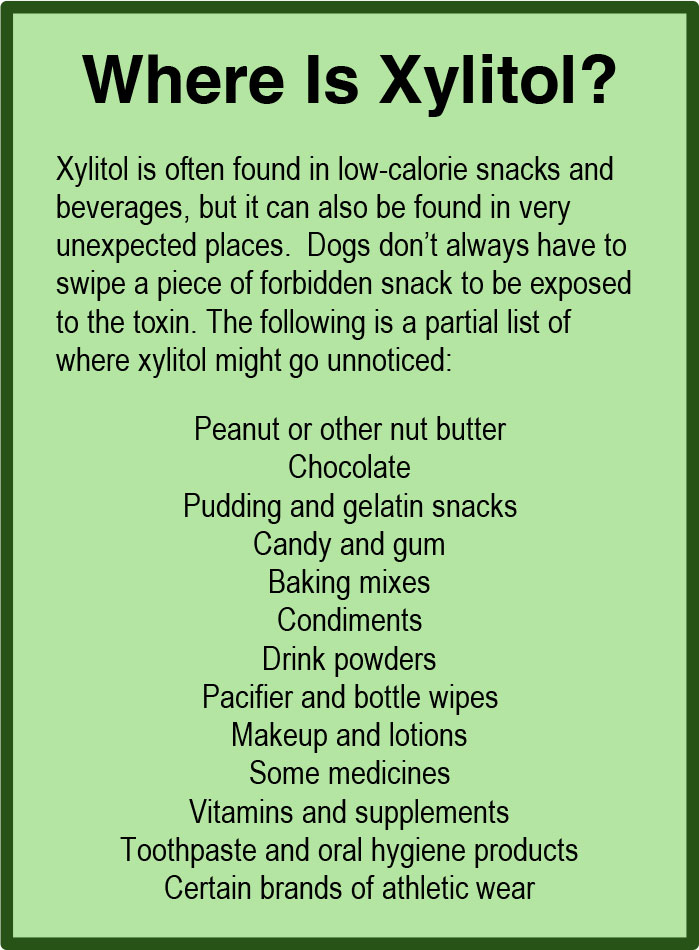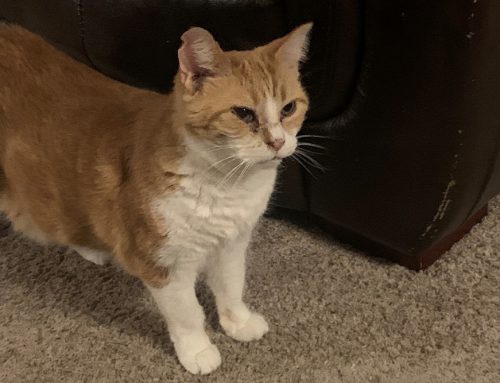
I didn’t know dogs aren’t supposed to chew sugar-free gum. I thought it would be fun. I didn’t know it was toxic.
“Diet,” “low sugar,” “sugar-free” and “zero calories” are options on many of the snacks, foods and beverages people consume, but many pet owners don’t realize those products can be toxic for dogs. Mojo was one of the lucky dogs who committed a no-no that could have killed him but whose family’s quick response saved his life.
Xylitol is a sugar alcohol that is a natural sweetener used in hundreds of consumables, but it can also be found in body products such as makeup, lotions, oral hygiene products and many other items – even some clothing. It contains fewer calories than sugar and even has some health benefits for humans that sugar doesn’t offer. It is versatile because it can add texture to some foods or skin products, and when used in clothing it can make the fabric more breathable.
“Xylitol doesn’t appear to pose a health risk to humans, cats or horses, but even a very small amount is highly toxic to dogs,” said Dr. Michelle McDonough, “but it poses a huge threat to dogs. When a dog consumes something containing xylitol, the sweetner quickly enters the bloodstream, causes low blood sugar and interrupts normal liver function. The dog can experience seizures, increased liver enzymes, even liver failure and death.”
Mojo was just being his curious self when he decided to see what chewing gum was all about. “He ate approximately 30 pieces of sugar-free gum,” said McDonough, noting the brand he chose was Ice Breakers, which Poison Control noted is among the gums with the highest amount of xylitol.
Because Mojo’s owner reacted very quickly and got him to Greendale Village Vet, McDonough was able to induce vomiting right away. Some of the pieces were still whole, but others had been chewed. “While we were taking care of Mojo, his mom called Poison Control to learn about the toxic doses. I was able to talk to the doctor there to discuss our treatment plan.”
Even though Mojo received care quickly, McDonough discovered he already had low blood sugar and a mild increase in his liver values. “It was less than two hours between the time he got into the gum and the time we started treatment. Xylitol gets into the bloodstream very rapidly,” she said.
McDonough gave Mojo dextrose intravenously to stabilize him enough to go to a 24-hour care veterinary hospital. “He did very well overnight, and he was able to go home the next day,” she said. When he returned to Greendale Village Vet for a blood panel recheck, his values were good.
“Everyone with a dog knows that at some point the pup is going to get into something it shouldn’t,” said McDonough. “It’s important for pet owners to be mindful of what kinds of things pose significant risks. Xylitol is only one of many things that can poison a dog, but there are also ordinary foods that are toxic for pets.”

McDonough recommended pet parents spend some time researching the kinds of foods, plants or other dangerous items there are for their pets. “What might be toxic for a dog might have no effect on a cat, rabbit, horse or some other animal. Pet parents should explore what kinds of threats there are for their particular pets,” she said.
If your pet shows symptoms of any kind of distress, or if you know your pet swallowed something it shouldn’t have, call your veterinary clinic immediately. Greendale Village Vet can be reached at 414-421-1800 or at www.greendalevillagevet.com.







Leave A Comment